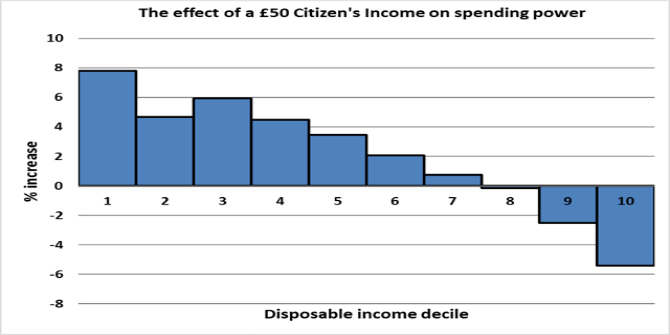 Julian le Grand proposes a politically feasible and practical solution for Eurozone currency devaluations.
Julian le Grand proposes a politically feasible and practical solution for Eurozone currency devaluations.
As the Financial Times’ chief economics commentator Martin Wolf has pointed out, the fundamental problem facing the Eurozone is a misalignment of internal exchange rates, leading to a dramatic loss of competitiveness for the weaker members of the zone.
This problem cannot be resolved by austerity measures alone. ‘Internal’ devaluation measures (such as wage cuts) are politically difficult to implement and in any case do not correct all the underlying imbalances- such as too low import prices. However, the obvious alternative- for the weaker countries to withdraw from the euro, introduce a new currency and devalue- is also deeply unattractive. Quite apart from the political and economic implications for the Eurozone as a whole, there are enormous practical difficulties that face any country introducing a new currency.
One way of overcoming some of these problems at least would be the following:
At a given moment in time, a country withdraws from the euro and denominates all its financial transactions in a new currency (drachma, lira) at a given exchange rate. It then instantly rejoins the euro but at a weaker exchange rate. This would be devaluation with all the same beneficial consequences for competitiveness, but without all the practical problems (printing and distributing notes and coins, etc.) associated with a new currency. Especially in a world where many transactions are undertaken electronically, it would be relatively simple to implement, with all prices and wages still denominated in euros but marked down by the amount of the devaluation.
It would be politically much more acceptable than austerity measures such as direct age cuts, since it would leave households’ real incomes largely unaffected- except for those who spend large sums on imports. Most important of all, it would preserve the current Eurozone; and, since the exit would be temporary- indeed almost instantaneous- it might even help overcome the legal difficulty that no Eurozone country can officially leave it.
This article is an edited version of a letter published in the Financial Times on November 17, 2011.
Please read our comments policy before posting.







Dear Sir,
I was intrigued by yr letter to FT on the 17th November 2011, however i fail to understand how such approach would work in a more positive manner for Greeks and the Greek economy as opposed to the currently adopted by the Government austerity policy of horizontal cuts to the people’s income. It is by now a proven fact that Greece joint the common currency at a very strong exchange rate (Drachmas 340.75/1Euro) but after 10 full years within Euro, there is little one can do to re-adjust by devaluing (even instantly) this original exchange rate. If for argument sake the exchange rate would devalue to Drachmas 500/1 Euro, the income would be re-adjusted accordingly but what abt the price (and not the cost) of goods and services? Unless re-adjustment of prices were imposed in the market, we end up with the same effect of arbitrary horizontal (or selective??) income cuts. Have I missed something in interpreting yr approach and suggestion? Greatful for yr advice
Kind regards
I have to say that I trully like the suggested mechanism which seems both politically and economically viable. At least, is a very fresh and alternative policy to overcome the burden of lack of an independent monetary policy that countries in euro area with debt are facing